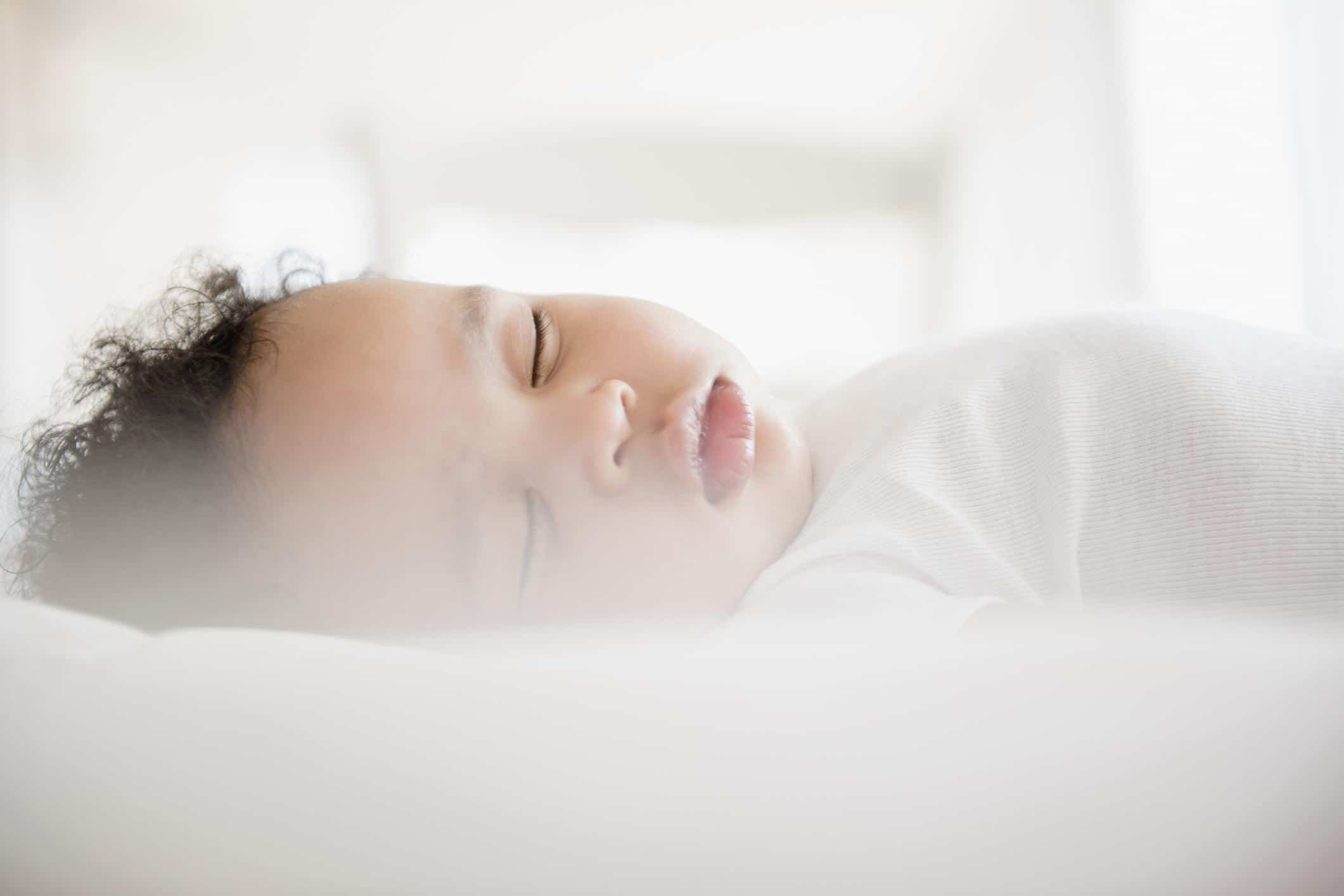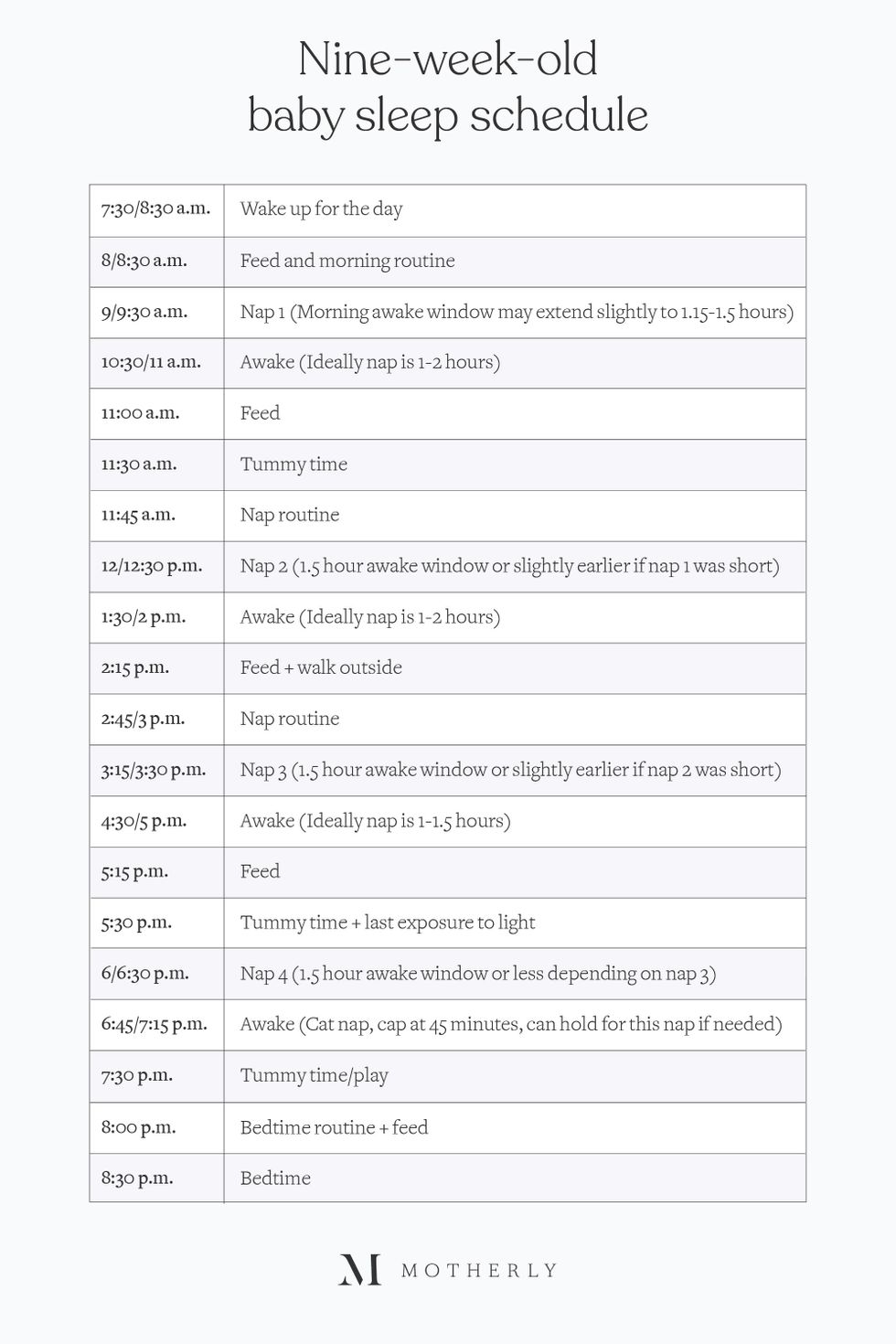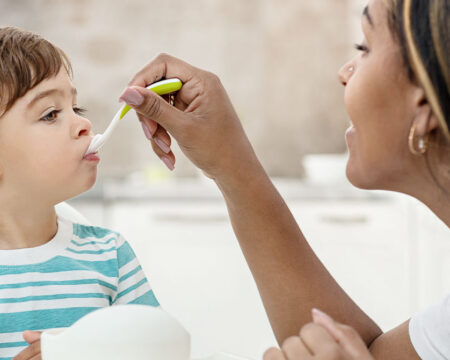How much sleep does a nine-week-old baby need?
Expert guidance tips on your newborn's sleep schedule.

“Are you getting any sleep yet?” That’s one of the most common questions a new parent gets. And when the baby is nine weeks old, it’s a question most parents probably don’t want to hear.
It’s unlikely your baby will sleep through the night by nine weeks. But that doesn’t mean you have to have completely sleepless nights. There are many ways to navigate these early weeks of newborn sleep. And we’ve put together a simple sleep schedule including how much time your nine-week-old is sleeping and tips on those early days.
To help you navigate these early weeks of newborn sleep, we’ve put together a handy sleep schedule of how much your nine-week-old is sleeping, plus some tips on these early days of sleeping.
How much sleep does a nine-week-old baby need?
Your new baby needs lots of sleep: a newborn should get 14-17 hours of sleep per 24 hours, according to the National Sleep Foundation.
“At nine weeks, you should see a pattern start to emerge with 3-4 naps per day, and at least two of those naps are ideally longer than 1-1.5 hours. If short naps persist and you notice that your baby isn’t taking ANY long naps, you want to make sure that all of your baby’s sleep foundations are in place. You can do this by focusing on full feeds every three hours throughout the day (with 1-2 feeds at night), a consistent nap and bedtime routine, practicing a consistent sleep environment that is promoting of sleep, and following 60-90 minute awake windows,” says Rachel Mitchell, founder of My Sweet Sleeper. If short naps continue to persist, keep practicing one assisted nap of the day.”
There’s a reason people say all newborns do is eat, sleep and poop. While every baby is different, the majority of newborns sleep on and off most of the day. And when they aren’t sleeping, they are eating.
To get yourself in a routine, we’ve put together a 24-hour mock sleep schedule for your 9-week old baby. (Note: this is meant to be an example of what you can expect your baby to do, however this is not meant to be a sleep schedule to attempt to put your baby on.)
Nine-week-old baby sleep schedule

“You will also notice that the less day sleep your baby gets, the more likely they are to wake up throughout the night. This is because sleep promotes sleep, so keep working on those naps and be as consistent as you can. You can continue to practice a later bedtime in this stage, unless you notice that your baby does better with an earlier bedtime. This is fine as long as bedtime isn’t before 630pm,” says Mitchell.
Wake windows for a nine-week-old
While every baby is different, most newborns can’t stay awake for more than 45 minutes at a time. These periods of time when the baby is awake in between naps are called wake windows. Wake windows are important because babies can’t self-regulate their own sleep patterns. An overtired baby struggles to fall asleep, so it’s important the baby doesn’t stay up longer than the appropriate wake window.
The average wake window for a nine-week-old newborn is 60-90 minutes at a time. During wake windows, you can do anything you want with the baby, including singing to them, playing with them, talking to them, taking them for a walk, changing their diapers or feeding them. By nine weeks, your wake windows are getting longer, so you can do a little more before it’s time for the baby to hit the hay again.
Sleep tips for newborns:
As you work on creating a daytime and evening sleep schedule for your baby, establish a bedtime routine and hopefully get a bit more sleep yourself, it’s important to consider the following sleep tips for newborns as well:
- Always place your baby on their back to sleep, not on the stomach or side. This helps to reduce the risk of Sudden Infant Death Syndrome (SIDS) and Sudden Unexplained Infant Death (SUID). The American Academy of Pediatrics initiated the “Back to Sleep” movement in 1992, and rates of SIDS/SUID have decreased dramatically since.
- Do not put anything else in the crib or bassinet. Keep plush toys, pillows, blankets, loose sheets, and bumpers out of your baby’s crib or bassinet for similar reasons as above.
- Avoid overheating. Even though they’re itty-bitty babies, you can dress them according to the room’s temperature. Don’t over-swaddle or over-layer their clothing.
- Try a pacifier. If they reject it, that’s OK. If it falls out, that’s OK. If you’re breastfeeding, you may want to wait until baby is comfortable with latching and effectively nursing before introducing a pacifier.
- Use a white noise machine. Whether your house is quiet as a mouse, or you’ve got other kids running around making noise, a white noise machine can help your baby feel soothed (and possibly tune out) in their surroundings.
- Snuggle it up. Your newborn wants your cuddles as much as you want to give them—especially if they’re fussy. Swaddle them up snugly, then rock them until they quiet down. There’s no such thing as holding a newborn too much (for safety reasons, don’t fall asleep with them in your arms).


